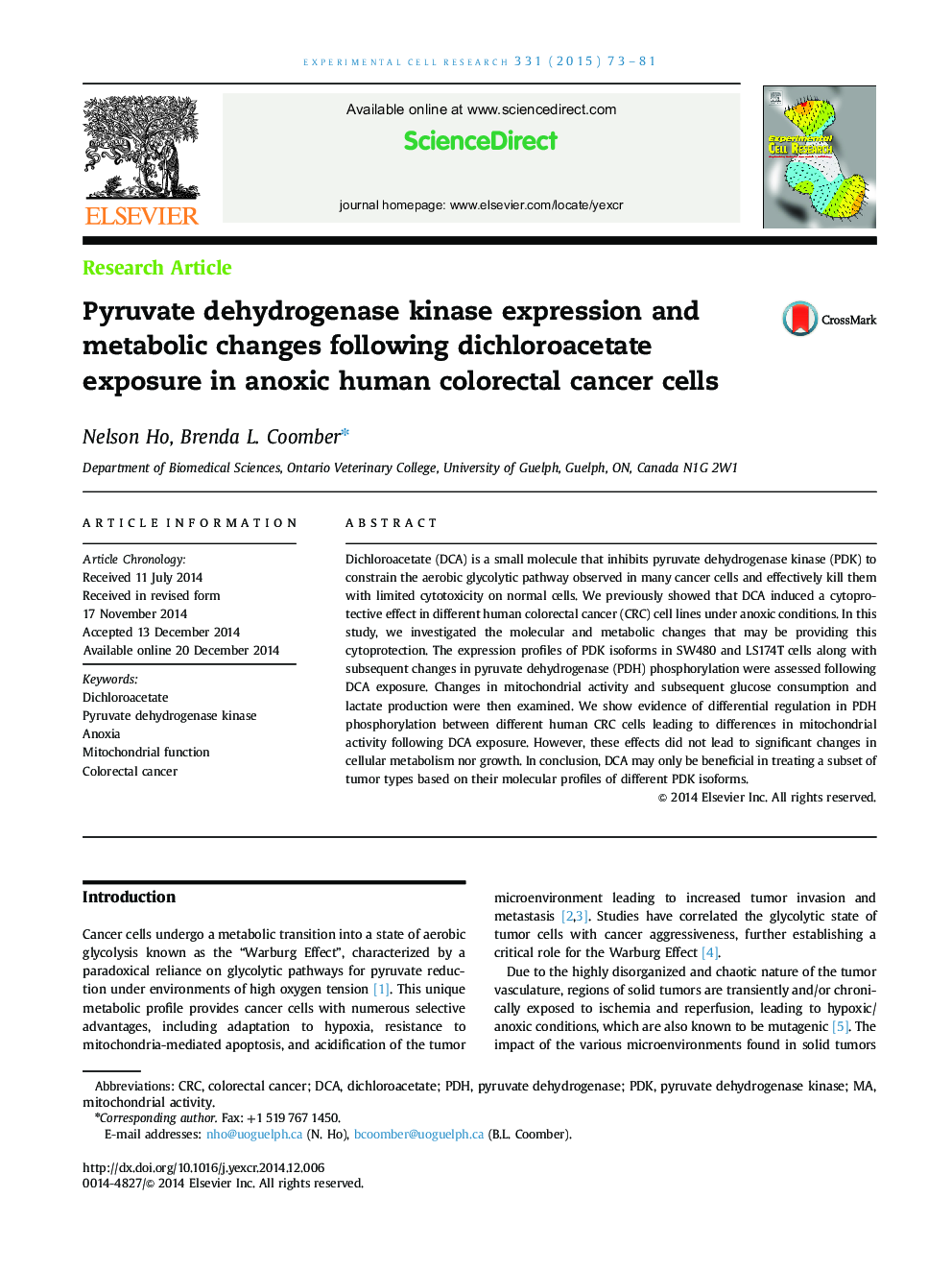| Article ID | Journal | Published Year | Pages | File Type |
|---|---|---|---|---|
| 10903932 | Experimental Cell Research | 2015 | 9 Pages |
Abstract
Dichloroacetate (DCA) is a small molecule that inhibits pyruvate dehydrogenase kinase (PDK) to constrain the aerobic glycolytic pathway observed in many cancer cells and effectively kill them with limited cytotoxicity on normal cells. We previously showed that DCA induced a cytoprotective effect in different human colorectal cancer (CRC) cell lines under anoxic conditions. In this study, we investigated the molecular and metabolic changes that may be providing this cytoprotection. The expression profiles of PDK isoforms in SW480 and LS174T cells along with subsequent changes in pyruvate dehydrogenase (PDH) phosphorylation were assessed following DCA exposure. Changes in mitochondrial activity and subsequent glucose consumption and lactate production were then examined. We show evidence of differential regulation in PDH phosphorylation between different human CRC cells leading to differences in mitochondrial activity following DCA exposure. However, these effects did not lead to significant changes in cellular metabolism nor growth. In conclusion, DCA may only be beneficial in treating a subset of tumor types based on their molecular profiles of different PDK isoforms.
Keywords
Related Topics
Life Sciences
Biochemistry, Genetics and Molecular Biology
Cancer Research
Authors
Nelson Ho, Brenda L. Coomber,
